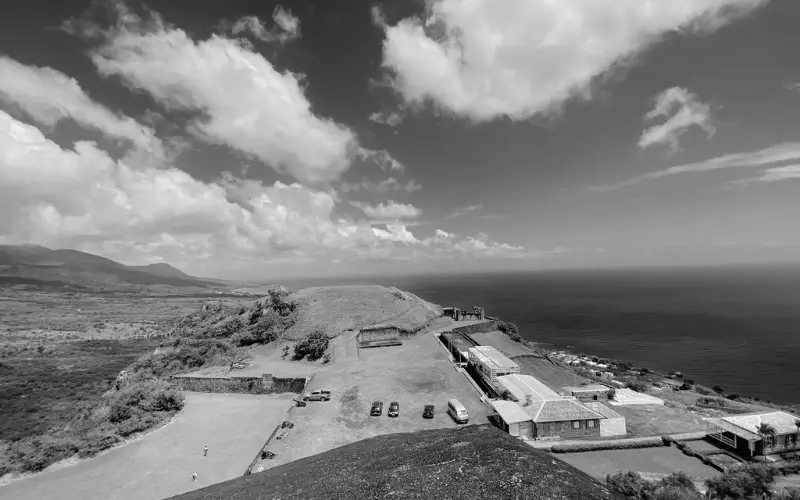The question of whether a Nevis trust can have a nominee settlor often arises in conversations with clients who seek confidentiality at the very first step of wealth structuring. While the settlor’s role is fundamental in trust law, not every client wishes to appear as the founder in documents. Professional visibility or simply a preference for discretion can make privacy at inception a priority. Nevis law provides the flexibility to meet this need without undermining the legal validity of the trust.
Another point of consideration is whether the trustee can simultaneously act as the settlor. Under Nevis law, there is no prohibition on this, and it is not uncommon for a licensed trust company to contribute a nominal amount purely to establish the trust. In such cases, the trustee is effectively a nominee settlor, with no beneficial interest in the assets and no role beyond the initial settlement. Once the structure is in place, its independence is secured through clear documentation and the separation of functions: the trustee manages the assets, but the wishes reflected in the deed belong to the underlying client.
This distinction is critical. The use of a formal settlor, whether an external professional or the trustee itself acting in a limited capacity, preserves confidentiality for the client while ensuring that the trust remains legally valid and structurally independent.
Understanding the Role of a Settlor
Traditional Role
In trust law, the settlor is the origin point of the structure. By transferring assets into the trust, the settlor creates a separate legal entity managed by the trustee for the benefit of named beneficiaries. The settlor’s functions are primarily:
- Initiation: contributing the initial property (often called the “settlor’s gift”), which legally establishes the trust.
- Instruction: setting out the terms of the trust deed, including who benefits, under what conditions, and what powers the trustee holds.
- Direction at inception: ensuring that the trust reflects personal or family objectives, whether that involves estate planning, family governance, or long-term asset protection.
Once the trust is established, the settlor typically withdraws from active involvement. Unlike a shareholder in a company, the settlor does not retain ownership of the assets. The trustee becomes the legal owner, bound by fiduciary duties to act exclusively in the interests of the beneficiaries.
Arrangements in Wealth Planning
In certain circumstances, a client may not wish to be identified as the settlor of record. This could stem from the sensitivity of their professional position or from a preference to keep personal identity distinct from formal wealth structures. In such cases, the role of executing the initial settlement may be delegated to a nominee settlor, whose function is limited to satisfying the legal requirement of creation. Their role is often documented through a private agreement, which confirms that the nominee acts only on behalf of the true initiator.
Risks and Considerations
A carefully drafted agreement is important to prevent conflicts or unintended claims. The use of a formal settlor can be effective, but only when properly documented. Without a clear agreement, disputes may later arise over who truly initiated the trust. Regulatory obligations add another layer, even if a nominee’s name is in the deed, financial institutions and trustees will always require disclosure of the beneficial settlor under KYC and AML rules. A trusted professional or licensed provider can ensure the structure is sound, whereas using an unqualified individual introduces unnecessary risk.
Nevis Law Perspective on Nominee Settlors
Statutory Framework
The Nevis International Exempt Trust Ordinance (NIETO) provides the statutory basis for creating and administering trusts. It sets out how a Nevis trust is validly constituted, what powers trustees hold, and how beneficiaries are protected. The Ordinance does not impose restrictions on who may serve as settlor, focusing instead on the substance of the settlement itself, a genuine transfer of assets into the trust. This flexibility leaves space for practical arrangements such as the use of a third-party or nominee settlor, provided that the documentation meets the legal requirements of Nevis law.
Although the law itself does not specifically create a separate category for “nominee settlor,” it does not prohibit such an arrangement either. What matters is that the trust has a legally valid act of settlement, supported by a deed that complies with Nevis law. As long as the documentation reflects a genuine transfer of assets to the trustee, the law recognizes the trust as valid. Under Section 9 of NIETO, trustees are required to maintain proper internal records, including details of the settlor and beneficiaries. These records are not made public but must be available to Nevis regulators upon request. This ensures that confidentiality in external documents is balanced by accountability within the legal framework.
Recognition Under Law
In practice, Nevis law permits a trust to be settled by a third party. What matters legally is that the transfer of property is genuine and that the trustee maintains clear documentation, ensuring the trust’s validity and independence.
It is equally useful where the trust will sit at the top of a multi-jurisdictional chain. Having a single founding signer across documents prevents the client’s name from being replicated through parallel instruments and reduces the need to re-paper as subsidiaries are added. The result is document economy: one clear act of settlement, acknowledged by the trustee, and a consistent package for downstream corporate actions.
Trustees and legal advisers in Nevis are accustomed to this approach, particularly when working with high-net-worth individuals and families who value confidentiality. The presence of a formal settlor does not undermine the legal standing of the trust, provided that the underlying compliance procedures are observed. It is therefore both legally feasible and practically common to be structured in this way.
Compliance and Regulatory Standards
Licensed trustees are bound by international compliance obligations, including KYC and AML standards. This means that while a nominee’s name may appear in the trust deed, the identity of the beneficial settlor will still be disclosed to the trustee and, when necessary, to financial institutions involved in banking or investment.
It should not be seen as a loophole, but as a legitimate mechanism of confidentiality, aligned with established regulatory standards. It allows families and entrepreneurs to benefit from confidentiality in public-facing documents, while maintaining full transparency in regulated relationships. This balance between discretion and compliance is a cornerstone of Nevis’s legal environment, ensuring both legitimacy and trust in the jurisdiction.
Fiduciary Duties
A formal settlor’s involvement does not modify the core duties of the office-holder. Once in place, the structure’s assets are managed only for the beneficiaries and precisely as required by the deed and applicable law. The nominee’s function ends with the act of settlement; it does not create continuing authority.
In some cases, the initial contribution required to establish the trust may come from a third party acting as the settlor of record, often referred to as a nominee or designated settlor. Alternatively, a licensed trustee company may provide the nominal amount itself in order to bring the trust into existence. In both scenarios, the contribution is purely formal and does not give the party making it any ongoing rights or beneficial interest. Once the trust is established, the trustee assumes its long-term fiduciary role, managing the structure exclusively in line with the deed and the beneficiaries’ interests.
To preserve the integrity of the arrangement, all communication with the underlying client is formalized through the trust instrument or letters of wishes. Independent record-keeping, compliance checks, and clear separation of functions ensure that the structure cannot be challenged as a sham. The trustee’s responsibilities remain consistent: to safeguard the assets, follow the terms of the deed, and uphold the interests of the beneficiaries.
Establishment Support
At Trust Nevis, ee handle the third-party (settlor of record) piece end-to-end, so the founding step is clean, defensible, and quick. That includes arranging an approved settlor of record, drafting deed language that makes the initial transfer unequivocal and grants no continuing rights, and coordinating the first settlement (including a nominal contribution where appropriate) with the licensed trustee under Nevis law.
Where external clarifications are needed, we coordinate with the licensed trustee. From there, we keep the roles strictly separated, the trustee administers under the deed, and the client’s intent guides the structure.
Frequently Asked Questions
Is a nominee settlor legally recognized in Nevis?
Yes. The Nevis International Exempt Trust Ordinance requires a valid act of settlement but does not restrict who may act as the settlor. A nominee can formally establish the trust, provided the transfer of property is genuine and documented.
Does a nominee settlor have any control after the trust is created?
No. The nominee’s role ends with the establishment of the trust. Management of the assets lies entirely with the trustee, who is bound by fiduciary duties to the beneficiaries.
Will the identity of the true settlor remain confidential?
Under Section 9 of NIETO, trustees must record this information internally and provide it to regulators if requested, but it is never part of any public register.
Can the trustee also act as the settlor?
Yes, but only in a limited way. A licensed trust company may contribute a nominal amount to establish the trust, effectively acting as a nominee settlor. This does not grant it additional rights beyond its fiduciary responsibilities.
Why would a client use a nominee settlor?
Most often to preserve privacy, particularly for public figures or entrepreneurs whose personal association with the creation of a trust could attract unwanted attention. The nominee arrangement provides discretion while keeping the structure fully compliant.













